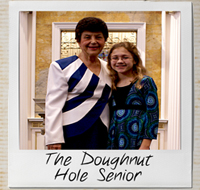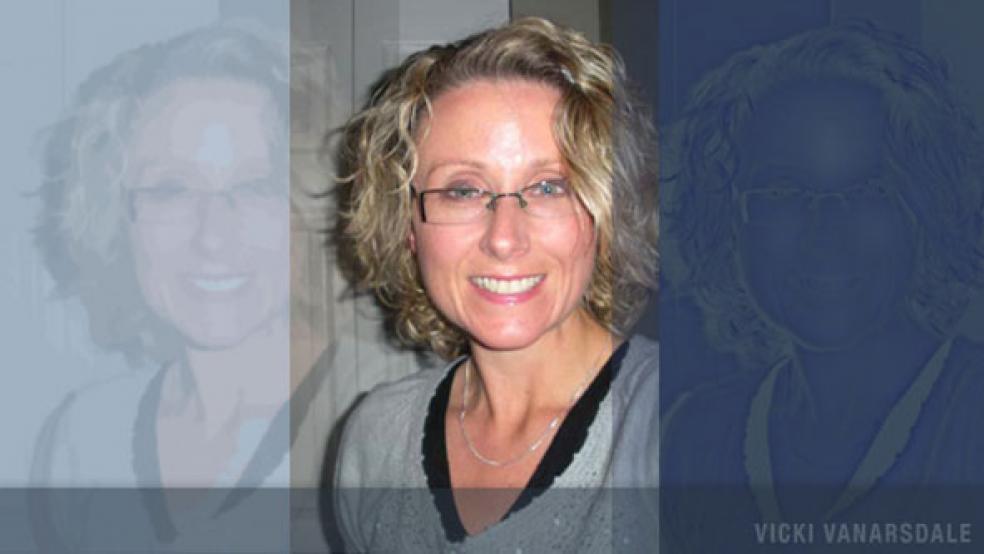Chris Wabik, an electrician, checks with his local union hall every day to see if he has been called back to work.
He’s been doing that since last June.
That’s when he was laid off after his company in a Maryland suburb of Washington, D.C., lost some contracts in the area’s once-booming commercial building business. Now another June is fast approaching. And unless Congress extends the window, this time he will lose his unemployment benefits.
Wabik, 49, a native of Poland who says he first came to the United States as a political refugee and later got his citizenship and training, is facing the worst economic times he can remember. U.S. joblessness has grown into an economic and political crisis that many analysts fear could linger for years. It could be a deciding factor in this year’s midterm elections.
Wabik’s wife, Kate, has a job as a senior accountant for a hotel chain, but they figure they need two incomes to make their house payments and pay all the other bills. They have two children. As for the job market, Kate says, “It’s dreadful.”
Dreadful is a word many use about today’s labor markets. The national unemployment rate is now at 9.7 percent, and many economic analysts say it will remain high for many months, and possibly even years, deeply affecting society’s upward mobility.
President Obama has put job creation at the top of his agenda, proposing a new stimulus package and pushing to provide incentives for small businesses to create new jobs.
The next national jobless figures, covering February, will be released on Friday by the Bureau of Labor Statistics, but little relief from the numbers is anticipated. In a pre-emptive analysis, Lawrence Summers, director of Obama's National Economic Council, suggested the heavy snows during February could distort the jobless figures.
Economist Paul Kasriel of Northern Trust Co. in Chicago said the national unemployment rate could climb to 10 percent by midyear before easing off.
“The official unemployment may be at 9.7 percent, but a broader definition—which would include people who have just dropped out of the labor force or are working part-time and want to work fulltime—puts that figure closer to 17 percent,” Kasriel said.
In a speech a week ago, Janet Yellen, president and chief executive officer of the San Francisco Federal Reserve Bank, said she saw “painfully high unemployment for years.” She predicted a 9.25 percent jobless rate this year and 8 percent by the end of 2011.
Some analysts believe there has been a fundamental change in the jobs market, with employers getting more productivity out of workers and reexamining everything they do in order to cut costs. If this is so, Yellen said, “the rate of job creation will be frustratingly slow.”
Small business has been the traditional growth area of jobs, but not so during this downturn. The National Federation of Independent Business said last month there was no indication that job growth will be strong enough to reduce the unemployment rate anytime soon.
Gary Burtless, an economist at the Brookings Institution, agreed with the general view that jobs will be slow to come back, but he noted that “you never can tell.” Surprises that have hit the U.S. economy both positively and negatively over the past 30 to 40 years could happen again, he said.
Many workers who have felt the sting of unemployment are becoming more entrepreneurial, like Vicki VanArsdale of Washington, who took a buyout from the Bloomberg News Service last year.
She hired a personal coach to help her find a job. “I spent hours and hours and months and months applying,” she said. “I applied for 100 jobs. It takes a lot of time to look for a job. Only two interviews came from that.”
So, VanArsdale said, she took classes in nutrition and wellness, personal training, and Web development, and has been hired by women to help them in these areas. She is much happier, she said. “I am self-employed, even though I don’t have a lot of work right now.”
In Northern Virginia, Barbara Loza, 39, was laid off last year from her job as registrar for Falls Church High School.
She said she didn’t like that job and now has returned to her first love -- event planning and catering. She’s had some catering jobs but concedes, “It’s been a bumpy ride for me.”
Loza said job searching is difficult these days. “I kind of think of it as climbing a wall with pockets of quicksand,” she said. “You have to be very, very quick to follow up on leads.”

